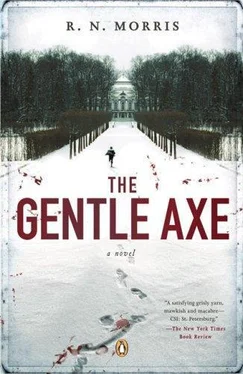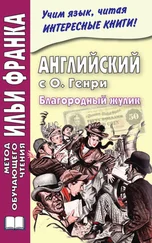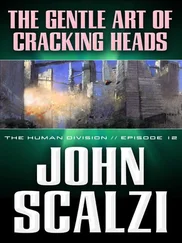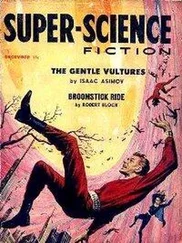R. Morris - The Gentle Axe
Здесь есть возможность читать онлайн «R. Morris - The Gentle Axe» весь текст электронной книги совершенно бесплатно (целиком полную версию без сокращений). В некоторых случаях можно слушать аудио, скачать через торрент в формате fb2 и присутствует краткое содержание. Год выпуска: 2008, ISBN: 2008, Издательство: Penguin Books, Жанр: Исторический детектив, на английском языке. Описание произведения, (предисловие) а так же отзывы посетителей доступны на портале библиотеки ЛибКат.
- Название:The Gentle Axe
- Автор:
- Издательство:Penguin Books
- Жанр:
- Год:2008
- ISBN:9780143113263
- Рейтинг книги:5 / 5. Голосов: 1
-
Избранное:Добавить в избранное
- Отзывы:
-
Ваша оценка:
- 100
- 1
- 2
- 3
- 4
- 5
The Gentle Axe: краткое содержание, описание и аннотация
Предлагаем к чтению аннотацию, описание, краткое содержание или предисловие (зависит от того, что написал сам автор книги «The Gentle Axe»). Если вы не нашли необходимую информацию о книге — напишите в комментариях, мы постараемся отыскать её.
The Gentle Axe — читать онлайн бесплатно полную книгу (весь текст) целиком
Ниже представлен текст книги, разбитый по страницам. Система сохранения места последней прочитанной страницы, позволяет с удобством читать онлайн бесплатно книгу «The Gentle Axe», без необходимости каждый раз заново искать на чём Вы остановились. Поставьте закладку, и сможете в любой момент перейти на страницу, на которой закончили чтение.
Интервал:
Закладка:
“Down!”
Ptitsyn sank groaning to his knees, losing his cap and receiving in return a face full of snow as Salytov dismounted over his head. “What have you found, sir?” he asked, when he had retrieved his cap and staggered back to his feet.
Salytov examined the paper with an expression of angry triumph. “Ha! This will show him!”
“Is it a clue, sir?”
Salytov folded his wallet over the slip of paper and scanned the ground eagerly. He noticed a mound of snow of suspiciously regular shape some way from the tree.
“There,” Salytov pointed.
“Could he have jumped from that, sir? Is that what you’re thinking?” asked Ptitsyn.
“What?” snapped Salytov.
“I only mean, sir-”
“I don’t give a damn what you mean, you imbecile. I commanded you to investigate that mound in the snow. Are you refusing to obey my order?”
“No, sir. Of course not, sir,” said Ptitsyn, stung by Salytov’s severity. But he was determined to prove himself worthy of the stern officer’s approval. He did not waste time wondering how the word there could be interpreted as a formal command. He lunged in the direction Salytov was still pointing.
Ptitsyn crouched by the mound, which seemed to have a precisely rectangular outline beneath the soft, rounded surface of the snow. He scooped away a few handfuls of the freshest fall from one side, revealing patches of brown in a sheer, smooth surface. “I think it’s some kind of suitcase,” he said, as he continued to excavate. “It appears to be open. There’s-” Ptitsyn broke off. His gloved fingers groped into the snow and lifted what turned out to be an envelope, lilac in color. So delighted was he with this haul as he handed it to the lieutenant that he failed to notice what it had uncovered. But as Ptitsyn looked keenly into the lieutenant’s face, he noticed that it had suddenly become unusually pale, as if the heat of his temper had been siphoned from him. There was no ferocity there. Following Salytov’s eye line toward the spot he was staring at, Ptitsyn gasped to see the features of a man in the snow. “Did you ever see anything like this, sir?” he whispered, his eyes wide open in shocked wonder.
When Salytov answered, his voice was soft and awed. “Go back to Shestaya Street. Take a drozhki. Tell them what we have found.”
“Yes, sir.”
“I will stay here to secure the scene. You will return with more men. We will need a wagon.”
“Yes, sir.”
“Go then!” Salytov clapped his hands once to send the young policeman running. He watched Ptitsyn’s swaying back recede as he took out his wallet once more and placed the lilac envelope inside.
The Prokuror
Three trestle tables had been set up in the large shed that the Haymarket District Police Bureau used to store firefighting engines. The building was next to the department’s stables in Malaya Meshchanskaya Street, around the corner from the bureau in Stolyarny Lane. The wide double doors were fastened open, allowing the day’s brutal light to flood the tables and their contents. On the first table were spread the various items that Salytov had recovered from Petrovsky Park. The other two held the bodies.
The bulking shapes of the fire equipment-the pumping engines, coiled hoses, and water-carrying wagons-lurked in the shadows at the edge of the hangar. With less reticence, six men stood around the tables. In addition to Porfiry Petrovich and Nikodim Fomich, present was Yaroslav Nikolaevich Liputin, the prokuror. In any criminal prosecution, it was his responsibility to decide if a crime had been committed and to draw up the indictment once a suspect had been arrested, as well as to prosecute the case through the courts. According to procedure, he was Porfiry’s superior, a relationship that was emphasized by Liputin’s towering height. It was impossible to argue with his appearance, dressed and groomed as he was with such consideration. Every hair, every hem, every button knew its place in the ordainment of his presence. Also in attendance were the two official witnesses required by the new laws, in this case Major General Volkonsky and Actual State Councilor Yepanchin; retired gentlemen, dressed now, naturally, each in the uniform of his rank. A certain querulous confusion was evident on the face of the major general. Actual State Councilor Yepanchin hid his emotions behind a mask of dignity. Both were quick to defer to Liputin. Finally, Porfiry had invited Salytov, out of courtesy, given his role in discovering the bodies.
The heat from a brazier at the rear of the shed barely reached them.
“So we are waiting for?” demanded Liputin imperiously.
“The physician, your excellency,” explained Porfiry.
“Physician? I don’t think we need a physician to tell us what has happened here, Porfiry Petrovich.”
“With respect, your excellency.”
“One corpse with his head hacked in, the other hanging by the neck with a bloody axe about his person. Really. You are not required to call a physician, you know. Under the new laws, an autopsy is not demanded in every case. You may use your discretion. You are able to look at the bodies yourself and draw certain conclusions. There is no need to waste our time like this. What need do you have to involve the office of the prokuror ?” Liputin spoke as if this were something separate from himself. “Yes, there has been a crime, two crimes, in fact. One murder, the other suicide. The man wanted for both lies dead on a trestle table. The case is closed.”
“Indeed, prokuror. But it is because I have examined the bodies-and the area in Petrovsky Park where they were found-that I feel it is necessary to call in a physician.”
Liputin’s eyes narrowed minutely, almost imperceptibly.
“This flask,” said Porfiry, lifting a pewter flask from the table of objects, “which Lieutenant Salytov recovered from one of the pockets of the hanging man.” Porfiry unstopped the flask and held it out to Liputin.
“Vodka,” confirmed the prokuror, inhaling.
“Yes. And it’s full. I can imagine a man intent on such deeds steeling himself with alcohol. Especially as he has gone to the trouble of preparing this flask. But to take the vodka along and not drink it?”
“You think the vodka is significant?” asked Nikodim Fomich.
“In cases like this, everything is significant.”
“Perhaps it was not a question of steeling himself,” objected Salytov, with some heat. “Perhaps he killed the dwarf in a fit of rage. And hanged himself in a fit of remorse. Perhaps too he was in the habit of carrying a flask of vodka about with him wherever he went. In the turmoil of the moment it was forgotten.”
“It is an interesting theory,” commented Porfiry. “And I am grateful to you for sharing it with us.”
“But you do not hold with it?” asked Liputin.
“Look at his coat.” Porfiry nodded toward the larger body. “What do you notice?”
No one risked an answer.
“Well, let me ask this of Lieutenant Salytov. Did you notice anything on the back of the coat when you cut him down?”
“Yes, there were some black marks,” said Salytov. “Oil, I think.”
“Yes. Oily marks on the back of his greatcoat. But on the front?”
“No oily marks,” ventured Nikodim Fomich.
“It is not the absence of oily marks that puzzles me. Rather-”
“No blood!” cried Salytov.
“Quite. The condition of the front of the coat leads me to believe that even if he is the murderer, he did not kill the dwarf immediately before killing himself. At least not with the axe. The absence of blood on the old soldier’s greatcoat is indeed puzzling, if we are to accept the interpretation of the evidence that the scene appears intent on forcing upon us.”
Читать дальшеИнтервал:
Закладка:
Похожие книги на «The Gentle Axe»
Представляем Вашему вниманию похожие книги на «The Gentle Axe» списком для выбора. Мы отобрали схожую по названию и смыслу литературу в надежде предоставить читателям больше вариантов отыскать новые, интересные, ещё непрочитанные произведения.
Обсуждение, отзывы о книге «The Gentle Axe» и просто собственные мнения читателей. Оставьте ваши комментарии, напишите, что Вы думаете о произведении, его смысле или главных героях. Укажите что конкретно понравилось, а что нет, и почему Вы так считаете.












